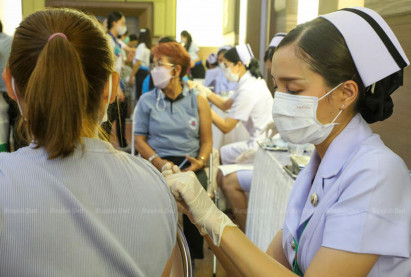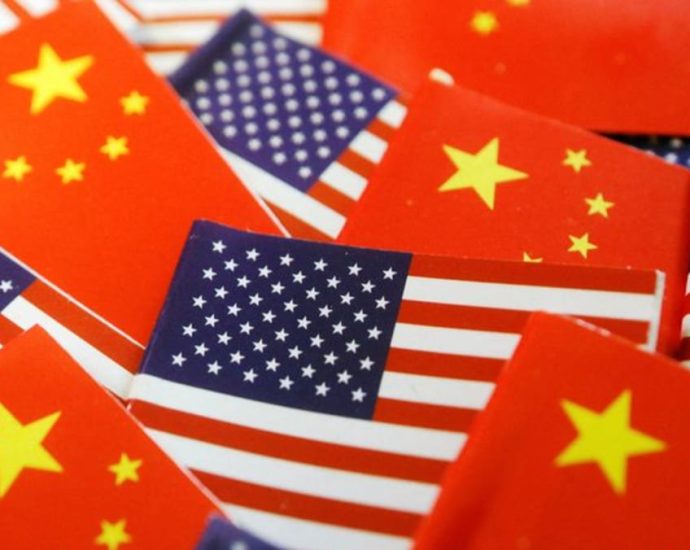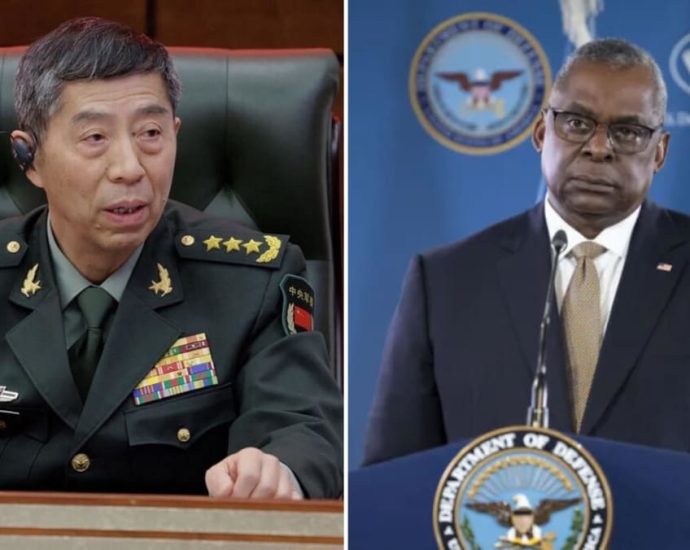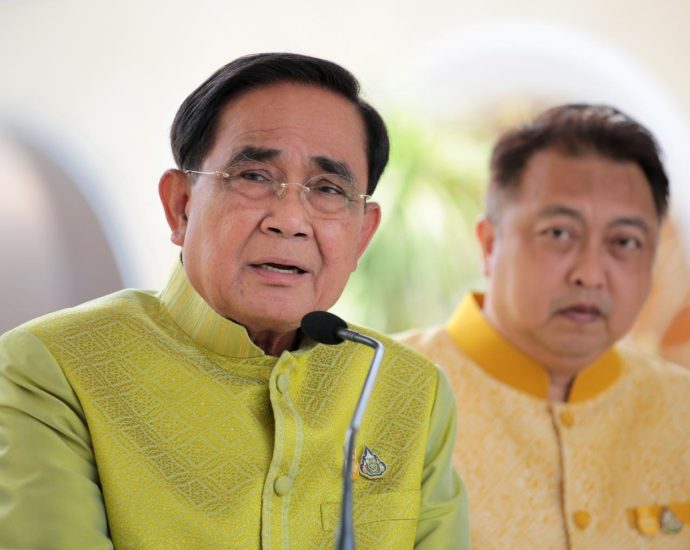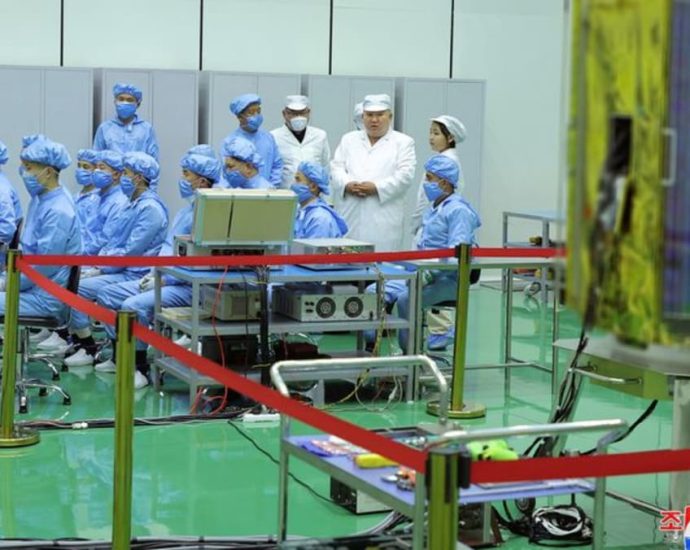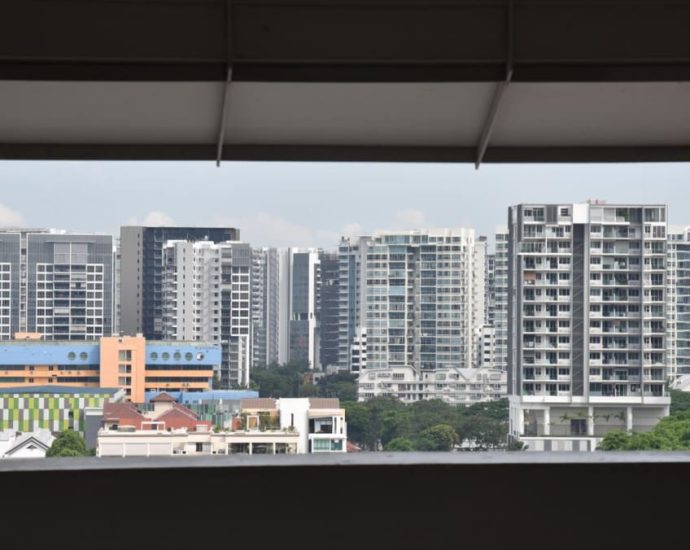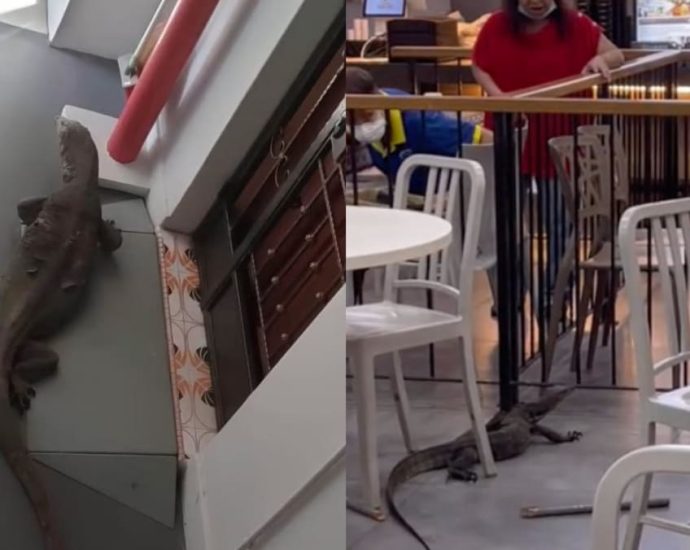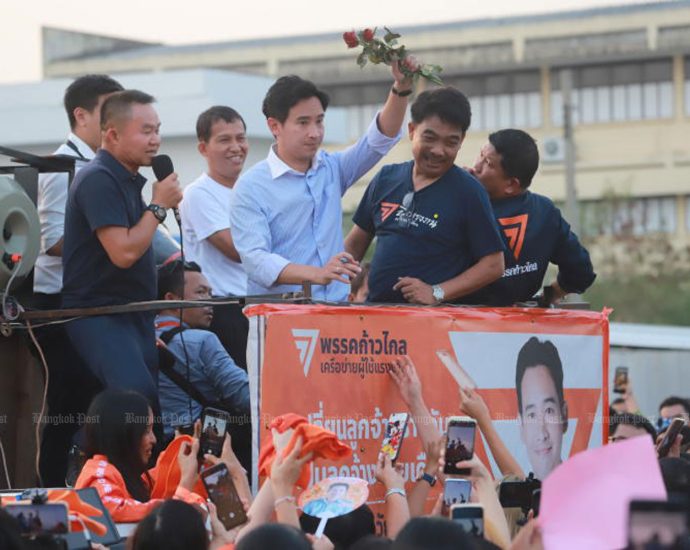Fatalities linked to Covid drop

Covid-19-related deaths declined last week as the dominant strain is neither more transmissible nor more severe, according to the Public Health Department.
Permanent secretary Opas Karnkawinpong said on Monday there were 42 fatalities related to Covid-19 last week, down from 64 deaths the previous week.
“The [fatality] rate is starting to fall,” he said.
Most of the deaths were elderly people, those with underlying illnesses and pregnant women.
Deaths resulted from lung inflammation, respiratory failure and complications, including those related to chronic kidney disease.
“Most of them had not sought the vaccination advised by the health ministry. Some people had fears of side effects,” Dr Opas said.
“Vaccines reduce symptoms and fatalities. Young family members should take their elders for vaccination. However, sometimes it turns out that the children and grandchildren are the people afraid of side effects,” he said while recommending annual Covid-19 inoculation.
Dr Opas said that the XBB.1.16 strain was spreading in Thailand, but it was neither more transmissible nor more severe than other strains.
He said Covid-19 infections were rising more in Bangkok than in other provinces.
Most cases now were asymptomatic because of vaccination. A survey found that 90% of Thai people had Covid-19 antibodies from vaccination or infection, Dr Opas said.
“It may now be similar to other respiratory diseases which evolve. After infection, people have antibodies, and the disease tries to adapt for co-existence,” the public health permanent secretary said.
“It is a time of balance between humans and the disease.”
He said there was no shortage of hospital beds for Covid-19 inpatients. The bed occupancy rate for Covid-19 patients nationwide was 22%.
China declines meeting with US defence chief: Pentagon
WASHINGTON: Beijing has declined a US invitation for a meeting in Singapore between Defense Secretary Lloyd Austin and his Chinese counterpart Li Shangfu, the Pentagon said on Monday (May 29). “Overnight, the PRC informed the US that they have declined our early May invitation for Secretary Austin to meet withContinue Reading
China declines US request for defence chiefs to meet in Singapore
China has declined a request by the US for a meeting between their defence chiefs at an annual security forum in Singapore this weekend, media reported on Monday (May 29), a new sign of strain between the powers. “Overnight, the PRC informed the US that they have declined our earlyContinue Reading
Prayut mum over rumours he will stay on
Doubts raised over coalition support for Pita to take role

Prime Minister Prayut Chan-o-cha on Monday brushed off rumours that he will remain as prime minister if a “political accident” were to happen in the near future.
The prime ministerial candidate for the United Thai Nation Party (UTN), who was asked about the claim after his meeting with the Young Entrepreneurs Chambers of Commerce (YEC), said he had no comment on the rumours, before adding that “everything must be done according to the regulations”.
“Don’t talk about ‘what ifs’ with me. There is no ‘what if’. It’s speculation, isn’t it? What if this? What if that? How can I answer that?” he said.
Doubts emerged if the eight-party alliance led by the Move Forward Party (MFP) will back MFP leader Pita Limjaroenrat’s bid to become the next prime minister and succeed in putting together a coalition government.
The bloc has 313 combined House seats, so it needs the support of at least another 63 MPs or senators to confirm Mr Pita’s nomination as premier. Moreover, the MFP and Pheu Thai recently locked horns over which party should take the House speaker post, triggering speculation the alliance could fall apart.
In his meeting with the YEC representatives, Gen Prayut said the group briefed him on the success of “young public and private collaboration” (YPC) programme in the eastern region.
He said it was his government’s policy to strengthen the capacity of young entrepreneurs who will play a greater role in national development and work with young generations of state officials.
The YPC programme for the eastern region included the development and promotion of processed durian in Chanthaburi, a smart mobility scheme in Chachoengsao and the development of the agricultural sector in Chon Buri in line with bio-circular-green (BCG) economic model.
North Korea says it will launch its first military spy satellite in June
SEOUL: North Korea will launch its first military reconnaissance satellite in June for live monitoring of US military activities, state media KCNA reported on Tuesday (May 30). In a statement carried by the KCNA news agency, Ri Pyong Chol, vice-chairman of the Central Military Commission of the ruling Workers’ Party,Continue Reading
Srettha denies rumoured ‘secret deal’ to usurp MFP

Srettha Thavisin, one of Pheu Thai’s three prime ministerial candidates, on Monday denied in a tweet rumours about a “secret deal” to form another coalition led by the Pheu Thai.
He tweeted the message after a photo of him and Bhumjaithai leader Anutin Charnvirakul at a Leicester City match at the King Power Stadium in the UK circulated. Mr Srettha said their encounter was a coincidence.
The property tycoon said that he had known the family of Vichai Srivaddhanaprabha for years and had attended the match to support Leicester City’s current bid to escape relegation.
“As for Mr Anutin, I know him personally, and we exchanged greetings and talked when we bumped into each other. There was no political talk or deal. We don’t have to come to England to talk [about politics],” he wrote.
The encounter between the pair followed rumours about a secret deal between parties.
Former massage parlour tycoon Chuvit Kamolvisit had posted on his Facebook page that secret negotiations were conducted to plot a course should the Move Forward Party (MFP) fail to gather more than half of the House seats required to form a government.
Mr Chuvit said the secret deal was called “come home”, a reference to former prime minister Thaksin Shinawatra who recently announced his intention to return to Thailand in July this year. Thaksin tweeted on Sunday night that he was puzzled by Mr Chuvit’s “secret deal” post. He said his daughter, Paetongtarn, who is another Pheu Thai prime ministerial candidate, had confirmed the party’s support for the MFP.
Ms Paetongtarn also responded to the rumour in a light tone, posting a photo of a party meeting attended by key figures with the caption “secret deal or love deal!” in response to the rumour.
Pheu Thai leader Cholnan Srikaew said on Monday the party was not involved in secret negotiations of any kind and that Mr Srettha’s trip to England had been for personal reasons only.
Mr Chuvit on Monday posted another message on social media, saying the secret meeting had taken place in Malaysia’s Langkawi to discuss the formation of an alternative alliance comprising Pheu Thai, Bhumjaithai, Palang Pracharath, the Democrats and Chartthaipattana.
Commentary: Even without WhatsAppâs new Chat Lock feature, itâs never a good idea to check your partnerâs phone

Interestingly, even in cases of years of extreme snooping and accusations of infidelity due to delusional jealousy, aggrieved spouses continue to stand by their partners.
For individuals who engage in snooping behaviour, it is essential to recognise the futility of their negative suspicious thought processes leading up to the snooping. Negative thoughts that a partner has done something wrong only perpetuates a cycle of resentment, distance, further suspicion and a need to snoop.
Instead, it is crucial to start working on building trust in the relationship. Have open and honest conversations with your partner, and express your concerns, insecurities, and fears.
Ironically, there have been cases where the fear of one’s partner cheating can sometimes be a self-fulfilling prophecy with a partner citing the stress of dealing with a jealous spouse as one of the reasons for their discretion.
If discussions become heated, seeking the assistance of a couple or marriage counsellor can facilitate non-confrontational communication, as well as establish healthy boundaries, and further rebuild trust.
At the end of the day, securing our devices and chats may help protect our personal information, but it does little to build trust in romantic relationships.
Double or triple-locking a chat only serves as a red flag that one has something to hide from one’s partner and does nothing more than arouse suspicion.
Dr Lim Boon Leng is a psychiatrist at the Gleneagles Medical Centre.
Singapore most expensive Asia Pacific city to own or rent private home, says study
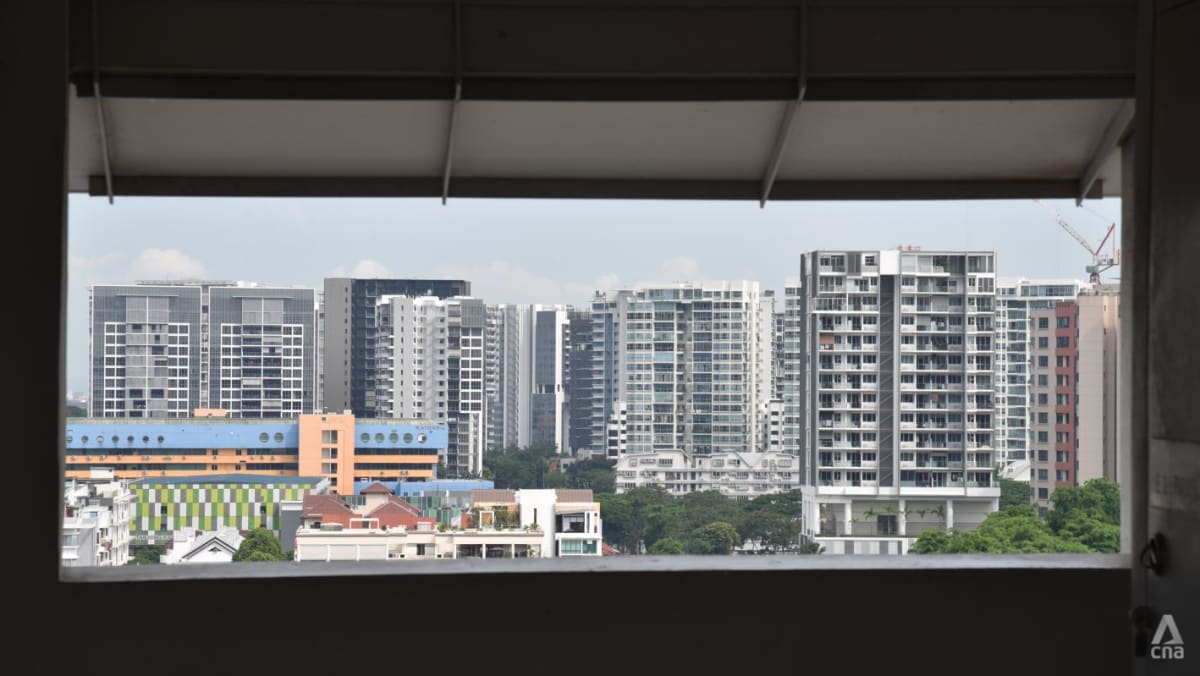
SINGAPORE: The median price of a private home in Singapore was US$1.2 million (S$1.6 million) in 2022, the highest among cities in the Asia Pacific, according to a report published on Tuesday (May 30).
In the latest Home Attainability Index by the Urban Land Institute (ULI) Asia Pacific Centre for Housing, Singapore also ranked as the region’s most expensive place to rent a private home.
The ULI Asia Pacific Centre for Housing bills itself as a think tank that aims to advance best practices in residential development and address housing issues relevant to the region.
In terms of affordability, the median private home price in Singapore was 13.7 times the median household income, a figure that dropped to 4.7 for public Housing Board flats. On the latter measure, Singapore ranks as the second-most affordable city in the Asia Pacific, after Brisbane, with a ratio of 4.5.
The report gives a snapshot of the extent to which housing is attainable in 45 cities in nine countries in the Asia Pacific: Australia, China, India, Indonesia, Japan, the Philippines, Singapore, South Korea and Vietnam.
In the past year, Singapore’s median private-sector home price increased more than 8 per cent, while Hong Kong’s median home price fell 8.7 per cent, the report said.
It cited a few factors that led to the price increases in Singapore, including a large influx of immigrants and a growing trend of young professionals moving out of family homes for more space and freedom.
There was also a reduced new supply of housing in the past few years due to a COVID-induced disruption to the supply chain of building materials and labour.
The Singapore government has tried to address the issue of rising prices with a series of property cooling measures. The latest set, introduced in April, included measures such as the doubling of buyer’s tax for foreigners to 60 per cent.
HONG KONG HOME PRICES
In contrast, home prices in Hong Kong fell substantially, returning to 2017 prices. This was mainly caused by a drop in population and a rising mortgage interest rate, the report said.
The current median home price in Hong Kong is US$1.16 million, an 8.7 per cent fall from the preceding year.
However, Hong Kong led the way on a per square metre basis. The median home price per sq m in Hong Kong was US$19,768, almost twice that of Singapore’s US$10,715. By this measure, Singapore ranks third, after Hong Kong and Shenzhen.
HOME OWNERSHIP
In terms of home ownership, Singapore continues to have the highest rate of nearly 90 per cent across public and private housing. This is due to the government’s “consistent commitment to enable its citizens to own homes at reasonable prices from the early years of the country’s independence in the 1960s”, said the report.
The median HDB price went up from US$379,000 to US$409,000, an increase of 7.9 per cent, and the ratio of median HDB price to median annual income increased from 4.5 to 4.7, the second-lowest in the list.
For private homes in Singapore, the ratio jumped to 13.7.
Topping the list was Shenzhen (35.0), followed by Ho Chi Minh City (32.5). Hong Kong’s ratio was 26.5, a sharp drop from the previous year’s 30.5.
Monitor lizards have ‘adapted well’ to urban areas, will flee when threatened: Wildlife experts
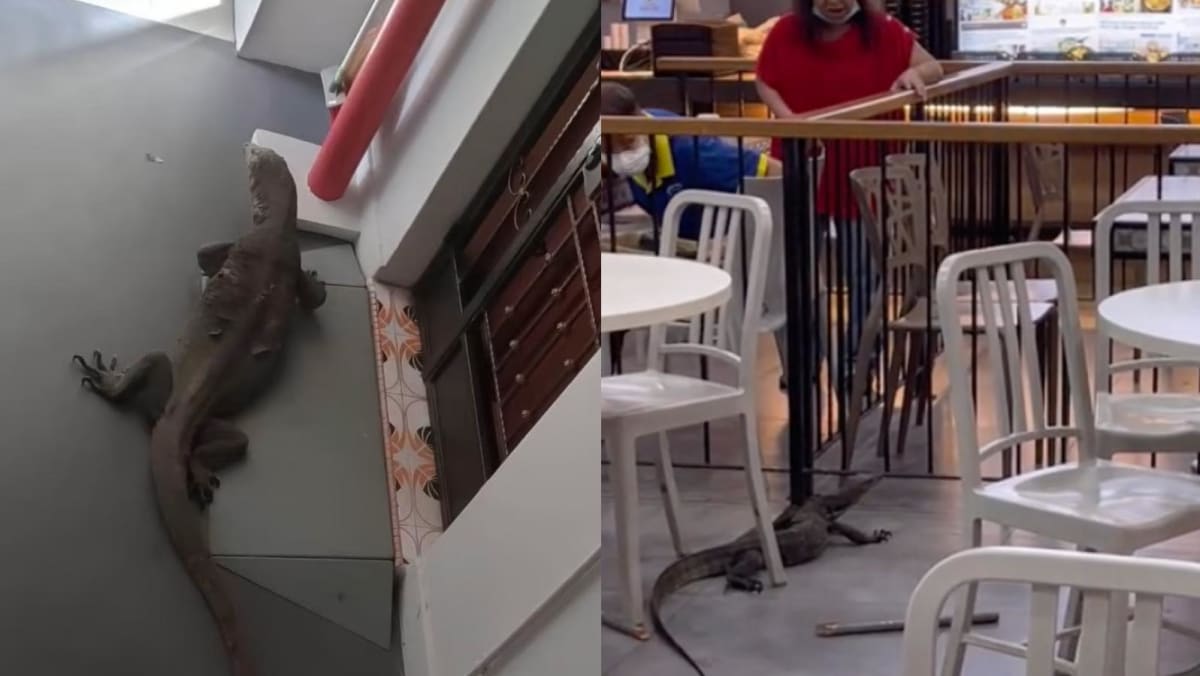
SHOULD PEOPLE BE CONCERNED?
Dr Lum said that monitor lizards – like most wild animals – may try to defend themselves if they are cornered and feel threatened, but will “gladly” choose an escape route if there is one.
While they do not pose any danger, how humans react to them and the possibility of encounters with monitor lizards turning ugly is a reason for concern, he added.
“Even if a monitor lizard walks into a flat, it would pose little to no danger to its occupants. But they can give people an almighty fright,” Dr Lum said.
“I can imagine some people being very scared by a monitor lizard – they can easily surpass a meter from nose to tip of the tail – especially if they turn up outside your door.”
Mr Kannan agreed that monitor lizards do not pose any harm if people keep a “safe and respectful distance”.
Nevertheless, he expressed concerns that interactions with monitor lizards, such as the Bedok North one, stem from “increasing detrimental pressures on local wildlife”.
WHAT TO DO
People who come across a monitor lizard should keep a distance, allow space for it to move or leave and make sure others do not attack it.
“If the monitor is in a space where it can’t leave or it’s too far from any kind of natural habitat, do alert the relevant authorities or organisations who’d help with proper relocation of the monitor,” Mr Kannan from ACRES added.
Court ‘may act on’ Pita share issue
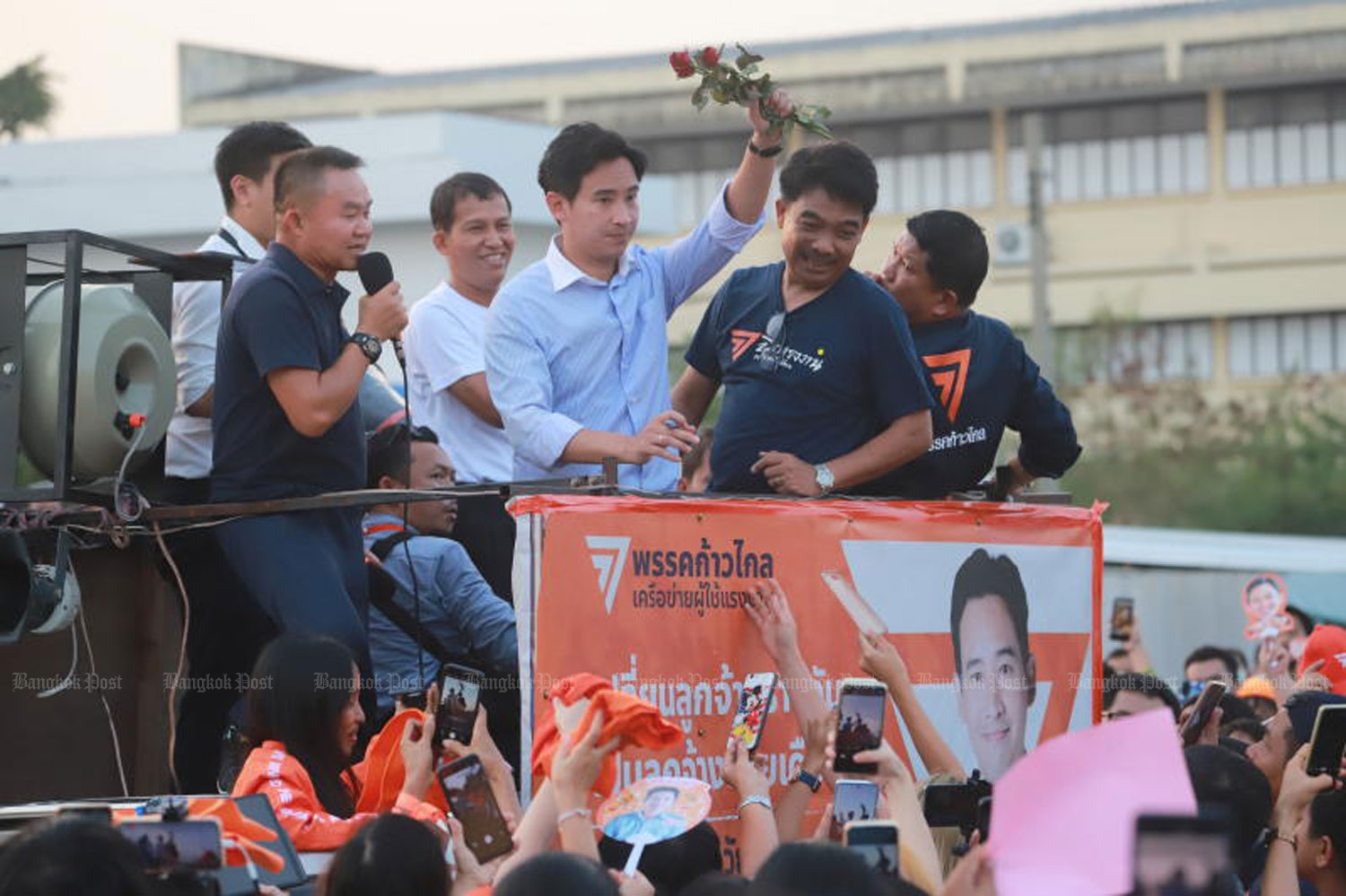
The Constitutional Court may suspend Move Forward Party (MFP) leader Pita Limjaroenrat if it agrees to hear the case involving his media share ownership, says Deputy Prime Minister Wissanu Krea-ngam.
The Election Commission (EC) has begun its probe into whether Mr Pita, who is the party’s list-MP and prime minister candidate, was eligible to run in the election due to his alleged holding of 42,000 shares in a media company.
The constitution prohibits electoral candidates from holding stakes in media companies.
Mr Wissanu said the EC might endorse Mr Pita as a list-MP while the probe is underway, and if the EC rules in Mr Pita’s favour, the case is closed. However, if the poll agency rules against him, the case will be brought to the Constitutional Court, which may suspend Mr Pita pending its decision.
The EC can investigate the complaint before or after the election results are officially announced.
The deputy prime minister cited as an example the case against Thanathorn Juangroongruangkit, former leader of the now-dissolved Future Forward Party (FFP), who was accused of violating the share-holding rule.
The court voted to suspend Mr Thanathorn as an MP when accepting the case against him in May 2019.
Mr Thanathorn was then nominated as prime minister for a vote in parliament in June while the ruling was handed down in November of that year.
When asked about the intent of the share-holding rule, Mr Wissanu said the matter is decided by the Constitutional Court, adding that the charter does not address the size of shares or a media company.
However, he noted that previous court rulings on similar share-holding violation claims against electoral candidates might be used to predict the outcome of the case against Mr Pita.
Meanwhile, political activist Ruangkrai Leekitwattana, who sought the EC probe into Mr Pita’s share-holding, yesterday gave a statement to the EC on the case and submitted the previous Constitutional Court rulings on holding shares to the poll agency.

